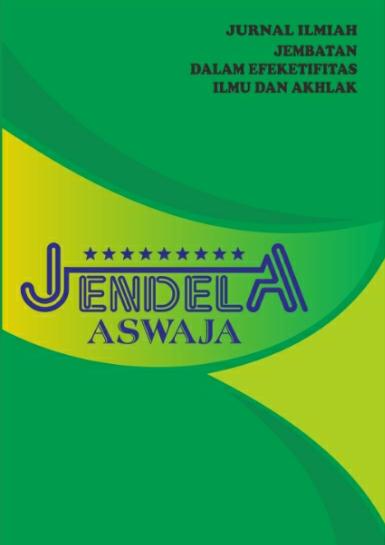Peran Penguatan Literasi Numerasi (Mata Pelajaran Matematika dan Non-Matematika) terhadap Peningkatan Sikap Matematis Siswa Madrasah Ibtidaiyah
DOI:
https://doi.org/10.52188/jeas.v5i2.851Kata Kunci:
Dampak, Literasi Numerasi, Sikap MatematisAbstrak
AbstrakPenelitian ini bertujuan untuk mengkaji peran penguatan literasi numerasi dalam mata pelajaran matematika dan non-matematika terhadap peningkatan sikap matematis siswa Madrasah Ibtidaiyah. Dalam konteks pendidikan saat ini, literasi numerasi sangat penting untuk membangun pemahaman konsep yang kuat di kalangan siswa. Tujuan dari penelitian ini adalah untuk mengidentifikasi dan menganalisis bagaimana penguatan literasi numerasi dapat meningkatkan sikap matematis siswa serta menyusun rekomendasi implementasi yang efektif. Metode yang digunakan dalam penelitian ini adalah studi pustaka, yang mencakup analisis berbagai literatur dan penelitian terdahulu mengenai literasi numerasi dan sikap matematis. Populasi dalam penelitian kepustakaan ini mencakup semua literatur yang berkaitan dengan literasi numerasi dan sikap matematis. Hasil dari literatur review ini diharapkan dapat memberikan wawasan mendalam mengenai pentingnya literasi numerasi dalam pengembangan sikap matematis siswa serta memberikan panduan bagi pendidik dalam merancang kurikulum yang lebih efektif. Kesimpulannya, penerapan penguatan literasi numerasi terbukti berpotensi untuk meningkatkan sikap matematis siswa, sehingga perlu dijadikan fokus dalam pengembangan strategi pengajaran di Madrasah Ibtidaiyah.
Kata kunci: Dampak, Literasi, Numerasi, Sikap, Matematis
Referensi
Ainley, J., Pratt, D., & Nardi, E. (2006). Students' Engagement with Mathematics in School: Cognitive, Effective, and Social Dimensions. In J. S. Kilpatrick, J. P. Swafford, & B. J. Findell (Eds.), Adding it up: Helping children learn mathematics (pp. 80-88). National Academies Press. https://doi.org/10.17226/9822
Arifin, M. (2023). The Role of Numeracy Literacy in Enhancing Critical Thinking Skills among Primary School Students. Journal of Educational Research, 45 (2), 123-135.
Bandura, A. (1997). Self-efficacy: The exercise of control. W.H. Freeman.
Boaler, J. (2015). Mathematical Mindsets: Unleashing Students' Potential through Creative Math, Inspiring Messages, and Innovative Teaching. Jossey-Bass.
Clements, D. H., & Sarama, J. (2015). Learning and Teaching Early Math: The Learning Trajectories Approach. Routledge.
Deci, E. L., & Ryan, R. M. (1985). Intrinsic Motivation and Self-Determination in Human Behavior. Plenum Press.
Empson, S. B., & Carpenter, T. P. (2018). Representations and Justifications in Mathematics Education. Routledge.
Farida, R. (2022). Confidence in Mathematics: Strategies to Enhance Student Self-Efficacy. International Journal of Mathematics Education, 54(1), 102-116. https://doi.org/10.1080/0020739X.2021.1888900
Fennell, F. (2006). Developing Mathematical Understanding in Children: An Approach to Teaching. Routledge.
Gonzalez, A., Gomez, E., & Rodriguez, M. (2021). The Impact of Numeracy Literacy on Students' Motivation and Interest in Mathematics. International Journal of Mathematical Education in Science and Technology, 52(3), 355-371. https://doi.org/10.1080/0020739X.2021.1888900
Kilpatrick, J., Swafford, J., & Findell, B. (2016). Adding it up: Helping children Learn Mathematics. National Academies Press. https://doi.org/10.17226/9822
Lee, J. (2021). The Role of Numeracy in Student Engagement. Educational Studies in Mathematics, 107(1), 15-29.
Miller, T., & McGowan, M. (2020). Self-efficacy in Mathematics: A Pathway to Positive Attitudes. Journal of Mathematics Education, 1(2), 245-258.
National Council of Teachers of Mathematics (NCTM). (2018). Principles to Actions: Ensuring Mathematical Success for all. National Council of Teachers of Mathematics.
Nurhadi, D., & Sari, Y. (2020). Interdisciplinary Approaches in Education: Linking Numeracy to other subjects. Journal of Interdisciplinary Studies in Education, 9 (3), 21-34.
Organisation for Economic Co-operation and Development (OECD). (2013). Mathematics literacy: A conceptual framework. OECD Publishing.
Organisation for Economic Co-operation and Development (OECD). (2016). Skills for a digital world. OECD Publishing. https://doi.org/10.1787/9789264252059-en
Piaget, J. (1973). To understand is to invent: The future of education. Grossman Publishers.
Suhendi, A. (2021). The influence of numeracy literacy on academic performance in mathematics and science. Journal of Science and Mathematics Education in Southeast Asia, 44(1), 67-80. https://doi.org/10.2139/jsmse.2021.067
Thomas, M. O. J., & Sriraman, B. (Eds.). (2018). The teaching and learning of mathematics: Insights and perspectives. Springer.
Thompson, A. (1992). Teachers' beliefs and conceptions: A synthesis of the research. In D. A. Grouws (Ed.), Handbook of research on mathematics teaching and learning (pp. 127-146). Macmillan.
Van de Walle, J. A. (2016). Elementary and middle school mathematics: Teaching developmentally. Pearson.
Wang, Y. (2022). Mathematical beliefs and attitudes: The influence of numeracy on student engagement. Journal of Mathematics Behavior, 57, 1-10.
Ziegler, A., & Karp, K. (2019). The effects of numeracy literacy activities on students' mathematical engagement and achievement. Mathematics Education Research Journal, 31(3), 345-362. https://doi.org/10.1007/s13394-019-00250-6
Ziegler, S., & Karp, K. (2019). Numeracy skills and student attitudes: A longitudinal study. Journal of Educational Psychology, 111(4), 692-707. https://doi.org/10.1037/edu0000359







